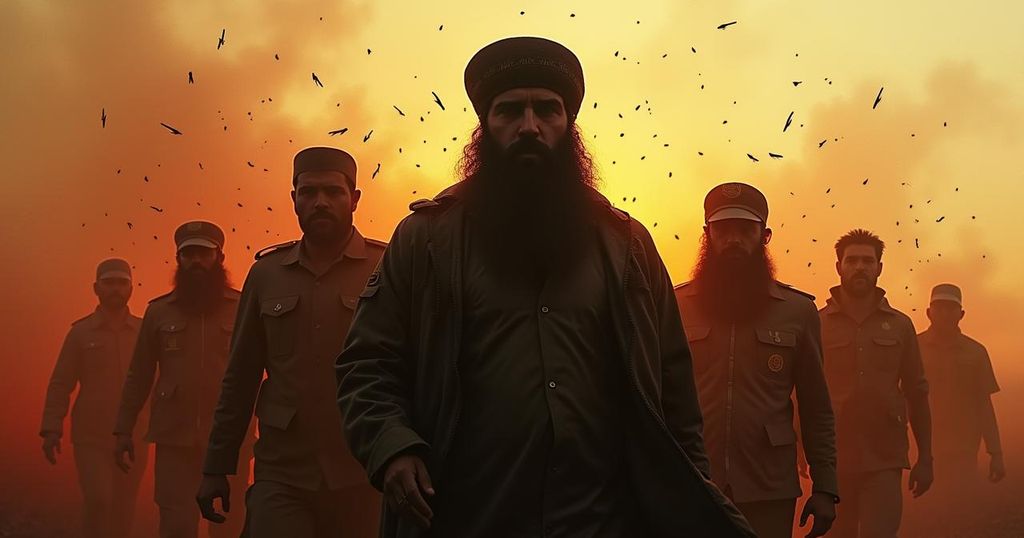Escalating Violence: Israel Strikes Key Hezbollah Leaders Amid Rising Tensions in Lebanon
Israel claims to have killed several Hezbollah leaders, including Hassan Nasrallah, amidst ongoing bombardments in Lebanon that have caused over 1,000 civilian deaths. Iran vows retaliation for Nasrallah’s assassination, while the UK urges its citizens in Lebanon to leave due to rising dangers. The conflict has led to substantial displacement, with hundreds of thousands affected. Calls for diplomatic resolutions are growing as the humanitarian crisis intensifies.
Israel continues its military operations against Hezbollah, claiming responsibility for the recent killing of key figures within the group. Following the assassination of Hezbollah leader Hassan Nasrallah in a strike on Beirut, reports indicate that his body has been recovered intact. The Israeli military asserts that Nabil Kaouk, another senior Hezbollah figure, was also killed in their ongoing bombardments, which have resulted in significant casualties in Lebanon in recent days. The health minister of Lebanon reports that over one thousand people, including women and children, have died in these strikes. Amidst the escalating violence, Iran’s Supreme Leader, Ali Khamenei, has vowed retaliation for Nasrallah’s death, marking a turning point in the conflict. The UK government has issued an advisory for its citizens in Lebanon, urging them to leave the country immediately due to the dangerous situation. In addition, the Israeli military claims to have dismantled a Hamas tunnel in Gaza, further showcasing the ongoing intensity of the conflict. Meanwhile, the Lebanese government has acknowledged a rising number of displaced individuals, stating that approximately 250,000 people have been forced from their homes due to the conflict. Amidst the uncertainty, Lebanese leaders have emphasized a diplomatic approach in response to Israel’s military actions. The conflict continues to present severe humanitarian challenges with reports of families left without shelter, resorting to makeshift accommodations in public areas.
The ongoing conflict between Israel and Hezbollah has deep historical roots, particularly following the Israeli invasion of Lebanon in 1982, aimed at curbing attacks from the Palestine Liberation Organization (PLO). The creation of Hezbollah was a direct response to Israeli military actions in Lebanon, and it has since evolved into a significant militant force. The recent accusations and retaliations, including the assassination of Hezbollah leaders, underscore the complexities of the power dynamics and military engagements in the region. The escalation of violence has further strained relations and exacerbated humanitarian crises, with substantial displacement affecting Lebanese citizens. The backdrop of Iranian involvement adds another layer of tension, particularly in light of recent statements from its leadership regarding potential reprisals for actions against Hezbollah.
The ongoing military strikes by Israel against Hezbollah leaders reflect deep-seated tensions and a cycle of violence in the region that is unlikely to resolve through military action alone. The assassination of Hassan Nasrallah raises questions about the efficacy of such strategies, and the potential for retaliation by Hezbollah and Iran signals an escalation that could have broader implications. The substantial civilian toll and displacement in Lebanon foreground the urgent need for diplomatic resolutions to prevent further loss of life. The international community, including nations like the UK, is observing the situation closely, calling for the protection of citizens and stability in the region.
Original Source: www.independent.co.uk




Post Comment